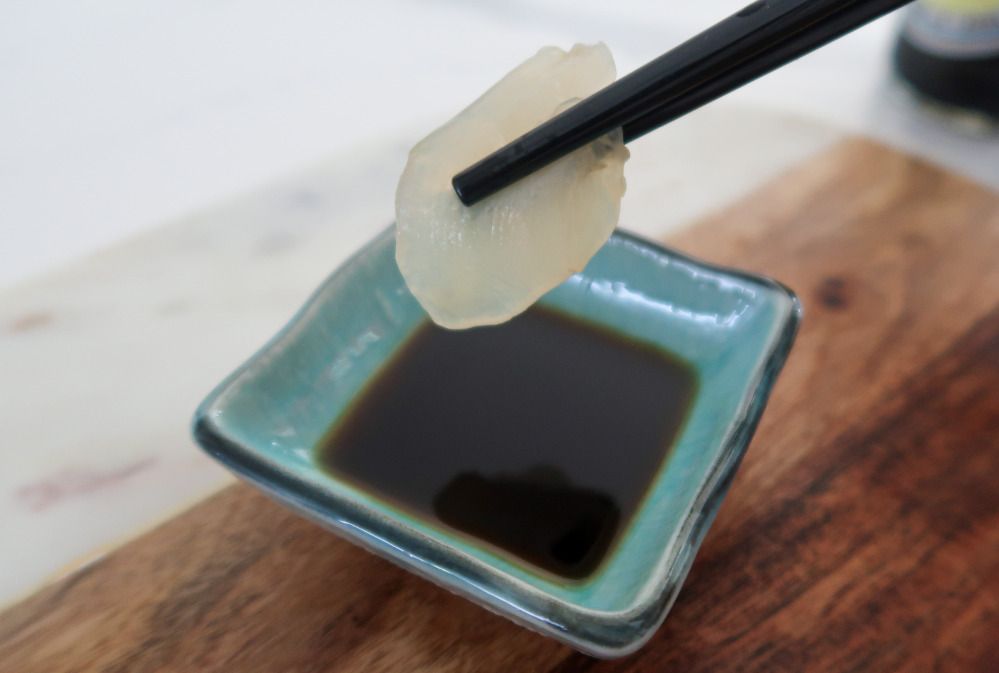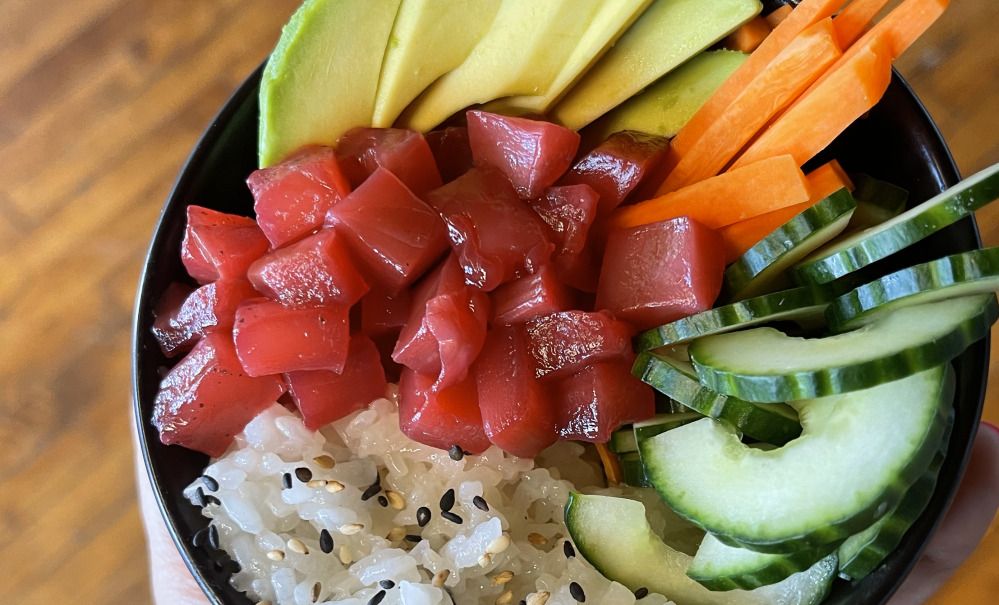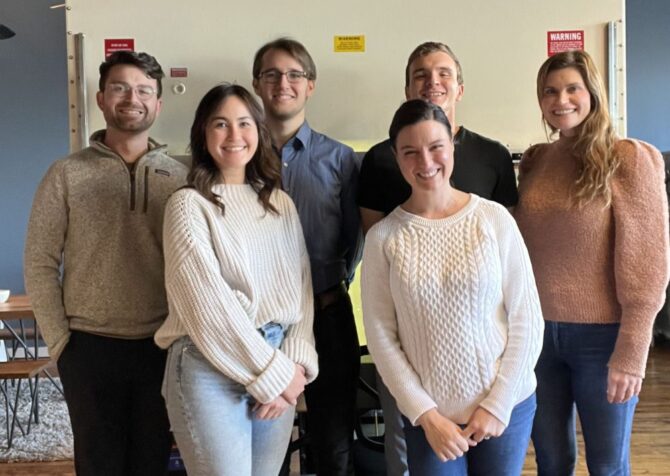Chicago-based Aqua Cultured Foods has raised $5.5 million in a seed round led by Stray Dog Capital to expand its low-cost production platform for whole cuts of fungi-based seafood as it gears up to enter the market this year.
The round was supported by H Venture Partners, Aztec Capital Management and Amplifica Capital, with follow-on investment from current investors Supply Change Capital, Big Idea Ventures, HPA, Aera VC, Kingfisher Family Investments, and Swiss Pampa, and a strategic investment from Korean food giant CJ CheilJedang.
The cash injection will help the startup scale up production at its new plant in Chicago and hire new staff, said CEO Anne Palermo, who cofounded Aqua Cultured Foods in 2020 with Brittany Chibe.
The plan is to launch with scallops and tuna (designed to be eaten raw), and ground shrimp (for cooked dumplings or shrimp cakes) at a small number of restaurants, said Palermo, who has raised a little over $8 million to date.
She told AFN: “Ultimately it is going to come down to taste, texture and price, and we can deliver on all three.”

Are consumers asking for seafood alternatives?
But how big is the addressable market, and are many consumers even looking for alternatives given that fish already has a healthy halo?
While most people see it as a healthy option, the laundry list of problems linked to seafood, from overfishing to heavy metal contaminants, pollution, microplastics, PCBs, fraud, mislabeling, illegal labor practices, and bycatch, is driving interest in greener, cleaner, alternatives, claimed Palermo.
However, restaurateurs Aqua Cultured Foods is targeting don’t have to care about any of the above to see the value in what she is offering, she claimed.
“The supply of available fish in the ocean is dwindling such that the cost of some of these wild caught species is doubling every year and supplies are not consistent. How do they put a product on their menu if they don’t know if they’re going to have it from one month to the next? We can provide consistent product at a price enabling them to meet their margins.”
EBITDA positive at pilot scale
While most seafood alternatives are made from extruded plant proteins, Aqua Cultured Foods has identified a strain of fungi that naturally grows into a fibrous biomass that can be harvested in its entirety and does not require multiple processing steps or expensive equipment.
Unlike fungi strains grown in liquid suspension in costly steel bioreactors, Aqua Cultured Foods adds liquid feedstock to a stack of trays, inoculates each tray with its fungi strain, and harvests the biomass 10-14 days later, explained Palermo.
“The facility will allow us to create 5,000-10,000lbs of product a month at full capacity. Our breakeven is selling 5,000lbs of product a month, and we are on track to do that, so we will be EBITDA positive at pilot-scale,” added Palermo.
“We’re not using bioreactors; we’re repurposing equipment that you might see in a mushroom farm that can produce large volumes of product in a small space without much labor. And on top of that, we’re not milling, refining, extruding or adding flavor maskers.”
The production process
She added: “The fungi will grow to whatever shape the vessel is, so right now we are growing it in sheets in trays, but we can also grow it in molds within the same containers,” added Palermo, who said the firm has filed patents around uses, methods of scale up, end process, and composition of matter.
Once the product is harvested, it goes through a kill step which removes residual flavor and extends the product’s shelf-life, she said. “After this, natural plant-based flavor, color and omegas can be added [the firm creates flaky sheets of omega-3 fatty acids EPA and DHA from algae that can be layered into the product].
“We prefer to keep the final product minimal so our chef partners can season it to their liking.”
The fungi is naturally high in protein and fiber, with no sodium, saturated fat or cholesterol, and a range of B vitamins including B12, said Palermo.
From a textural perspective, meanwhile, the platform is highly tunable, such that you can change the texture and nutritional profile of the final product (eg. calamari requires a tougher, chewier texture) by manipulating the feedstock and the environment, she explained.
“Changing the growth rate of the product changes the texture because it impacts how tightly woven the fibers are.”

Labeling and regulation: Nomenclature a work in progress
Aqua Cultured Foods has not shared the name of the fungi strain it is using and has gone through the self-GRAS (Generally Recognized as Safe) process in the US, said Palermo. “We have NDAs (non-disclosure agreements) in place with our customers so they know what we are using.”
As for how the fungi would be labeled and marketed, it’s still a work in progress, given that it’s not technically accurate to describe a fungi-based product as ‘plant-based,’ she said.
“We want something that people can immediately understand so we’ve been doing some research, but we’re also part of the new Fungi Protein Association which is exploring the best ways to describe and label these products.”





